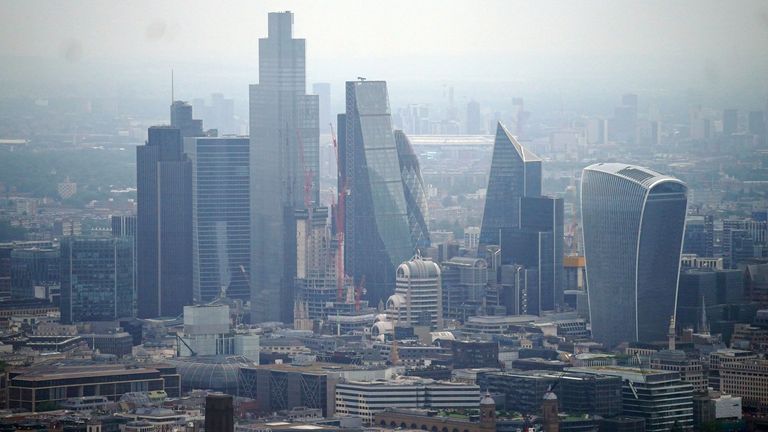After a very strong start to 2024, during which the UK economy achieved its strongest growth for two years, things stalled again in April.
That the economy flatlined during April was no surprise, though, given a couple of factors.
One was the early timing of Easter, which will have led some consumer spending that would normally have taken place in April to be brought forward to March.
Money latest:
The most expensive place to buy a seaside home in the UK
The other, more pertinent factor, was the weather.
The Office for National Statistics notes in its release that rainfall during April was 155% higher than the long-term average – making this the wettest April in more than a decade.
The arrival of Storm Kathleen at the end of the first week of April brought heavy rain to Scotland, Wales, parts of Northern Ireland and the West Country. In some parts of the country, things were even worse, with Edinburgh experiencing its second wettest April in 188 years. The last couple of weeks of April were also notably cooler than usual.
That all appears to have had a bearing on a wide range of sectors in the economy, including retail, construction – which was particularly afflicted by high winds – and pubs, restaurants and cafes.
The good news for the prime minister, such as it is, is that during the three months to the end of April, the economy grew by 0.7%. That represents a modest degree of momentum being carried forward from the first three months of the year and is still a pretty reasonable clip given the recent past.
The better news is that things will probably have picked up in May. Survey data for May, most notably the forward-looking purchasing managers index (PMI) survey, suggests that the services sector – which makes up just over three quarters of UK economic activity – continued to expand during the month while manufacturing looks set to have returned to growth as well.
The PMI reading for May for manufacturing was the best since July 2022. Other measures of activity pointing to stronger growth during May include the data published by the British Retail Consortium, which pointed to a month-on-month increase in retail sales, helped by solid trading over the first Bank Holiday weekend of the month.
That should be no surprise: the headline rate of inflation is falling – albeit not sufficiently rapidly to convince the Bank of England to lower interest rates yet – while the latest reductions in national insurance will have shown up in pay packets at the end of April and may have served to inject a little more confidence among consumers. At the same time, as shown by the wages data published on Tuesday this week, average earnings continue to grow more strongly than the headline rate of inflation.
Add to that the expected boost to the economy from the European football championships and the Olympic Games and consumer spending ought to continue growing during June and July. Manufacturing, meanwhile, also looks set to continue its recent pick-up in activity as the UK’s main trading partners in Europe and the United States also see a recovery in demand.
As Sanjay Raja, chief UK economist at Deutsche Bank, put it in a note to clients this morning: “The flat April print will likely be temporary. And moreover, we continue to see GDP maintaining its upward momentum through the rest of the year. Our updated models point to GDP growth of 0.3-0.4% quarter on quarter in the second quarter of 2024.
“To be sure, a cyclical recovery is underway. A firming in real disposable incomes will likely give way to firming household consumption.”
Mr Raja thinks the economy will grow by 0.8% this year.
Read more
Sunak and Starmer’s body language giveaways
Sunak: I’m not blind to people being frustrated with me
A history of TV debates
Meanwhile, an interest rate cut from the Bank of England is coming. It is possible, given the uptick in unemployment during the three months to the end of April, that the Bank of England might have been tempted to follow the lead of the European Central Bank and cut interest rates next week were it not for the general election.
As it is, a rate cut in August now looks highly likely.
All of this should continue to keep growth ticking over during the summer and into the autumn.
It all makes Rishi Sunak’s decision to go to the country early increasingly peculiar.



